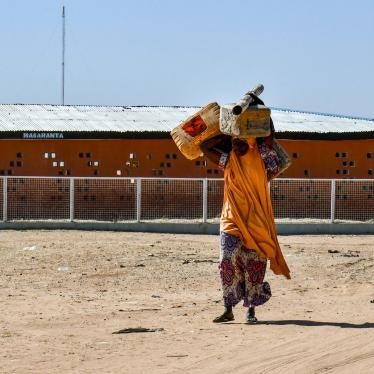The judge who told the Kenya Government a year ago that it couldn’t force urban refugees into remote and over-crowded refugee camps now says it’s fine to do just that. How could that be?
In July 2013, the High Court ruled unconstitutional a government directive ordering all refugees in Nairobi and other cities to move into the Dadaab and Kakuma camps near the country’s northern borders with Somalia and Sudan.
High Court judge David S. Majanja described the government’s order as a violation of the refugees’ freedom of movement and right to dignity.
But in March, the government dusted off and basically re-issued the same directive. And on June 30, Justice Majanja approved the new directive, expressing no concern that it could violate these same fundamental rights and freedoms.
It is difficult to see how the pertinent facts or the questions of law were any different the second time round.
In both cases, the judge was asked whether the government’s directive forcing refugees to move from cities to camps violated their rights as refugees and as human beings.
One difference, however, is who brought the case. The July 2013 case, Kituo Cha Sheria v Attorney-General, was brought by a non-governmental partner of the UN High Commisioner for Refugees, which also submitted an amicus brief in support of the refugees.
A group of Somali refugee businessmen in Nairobi brought this year’s case, Samow Mumim Mohamed & 9 Others v Cabinet Secretary. Justice Majanja said they “did not demonstrate” with “precision” how the directive violated their fundamental rights and freedoms as individuals.
In the July 2013 case, Justice Majanja carefully considered whether implementation of the encampment directive might lead to a situation that would force refugees back to the countries from which they fled – refoulement.
He concluded that the implementation of the policy would, indeed, violate the principle of non-refoulement, which he called “a peremptory norm of international law” that the Kenya Government is obligated to respect.
In June, he did not even consider the threat to the principle of non-refoulement. Last year, he discussed in detail the right of freedom of movement in international and domestic law.
For the government to restrict a refugee’s freedom of movement on national security grounds, he said, it would have to show that “a specific person’s presence or activity in the urban area is causing danger to the country and that his or her encampment would alleviate the menace.”
He concluded that “there is nothing to justify the use of security operation to violate the rights of urban-based refugees”, and ruled that the government’s encampment directive “violates the freedom of movement of refugees.”
In the new case, Mr Majanja reduced freedom of movement to a question of a regulatory technicality: whether the government had properly designated certain areas as refugee camps. And on that point, he simply deferred to the government.
During the 2013 ruling, Justice Majanja held that the inherent dignity of all people was “a core value” of the Constitution, and ruled that “the right to dignity of refugees is violated” by the directive.
During this year’s decision, he made no reference to dignity as a right nor considered whether refugees’ rights were being violated.
There is no reason to believe that refugees would be any less threatened by being ordered into the camps today than they were in July 2013.
There has been no improvement in conditions in the Kakuma and Dadaab camps, and the refugees’ human rights, refugee rights, and constitutional rights have not changed an iota in one year.
What changed was this: instead of actively seeking to uphold refugee rights through its legal partners, UNHCR chose not to bring a case. The inaction of the UN agency mandated to defend refugees and the failure of the High Court to uphold the same rights it had extolled a year previously, are incomprehensible.
The potential real life consequences for tens of thousands of refugees are nothing short of tragic.
Bill Frelick is the director of Human Rights Watch’s Refugee Rights Programme






